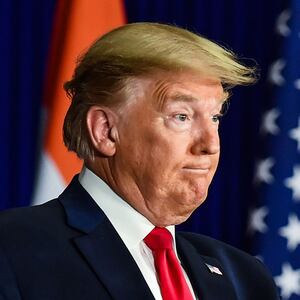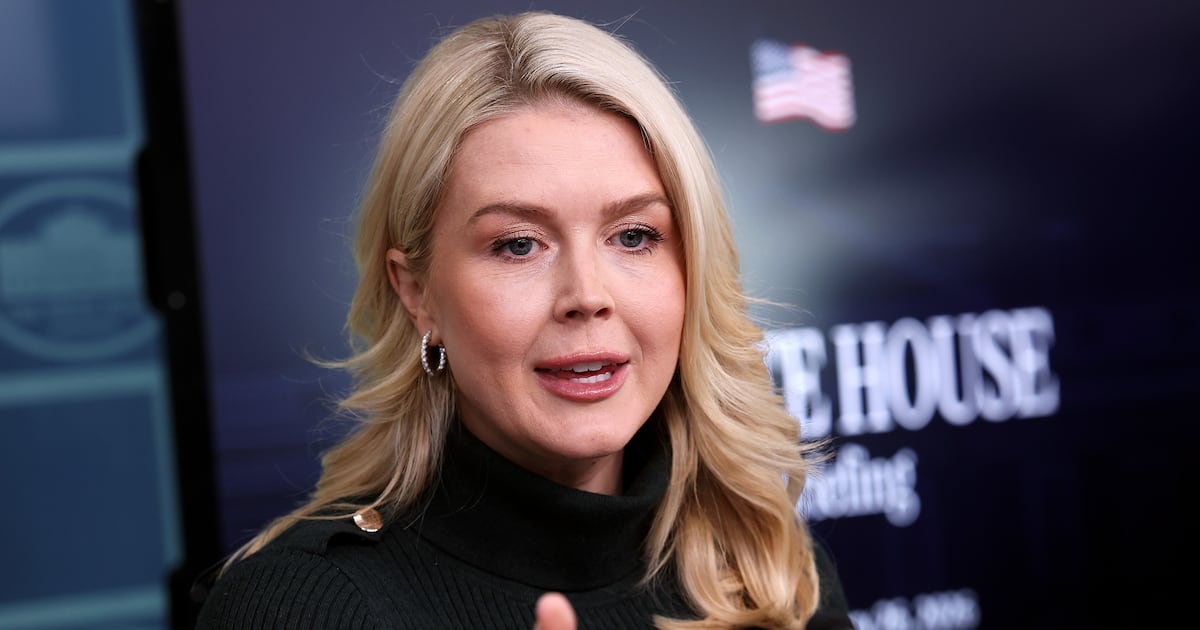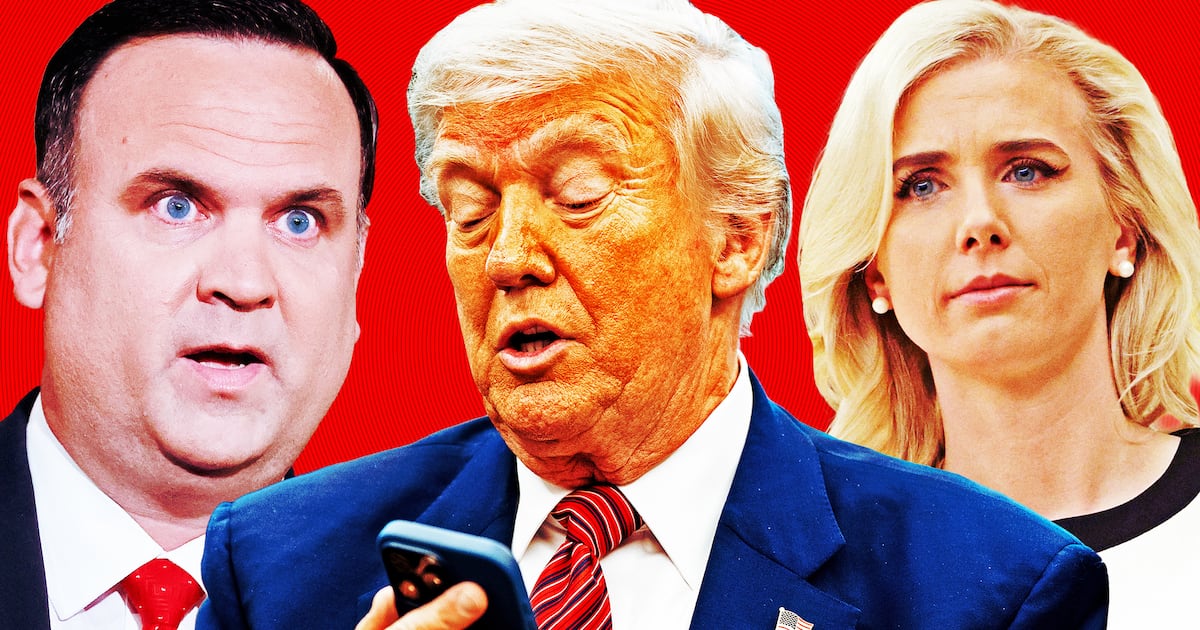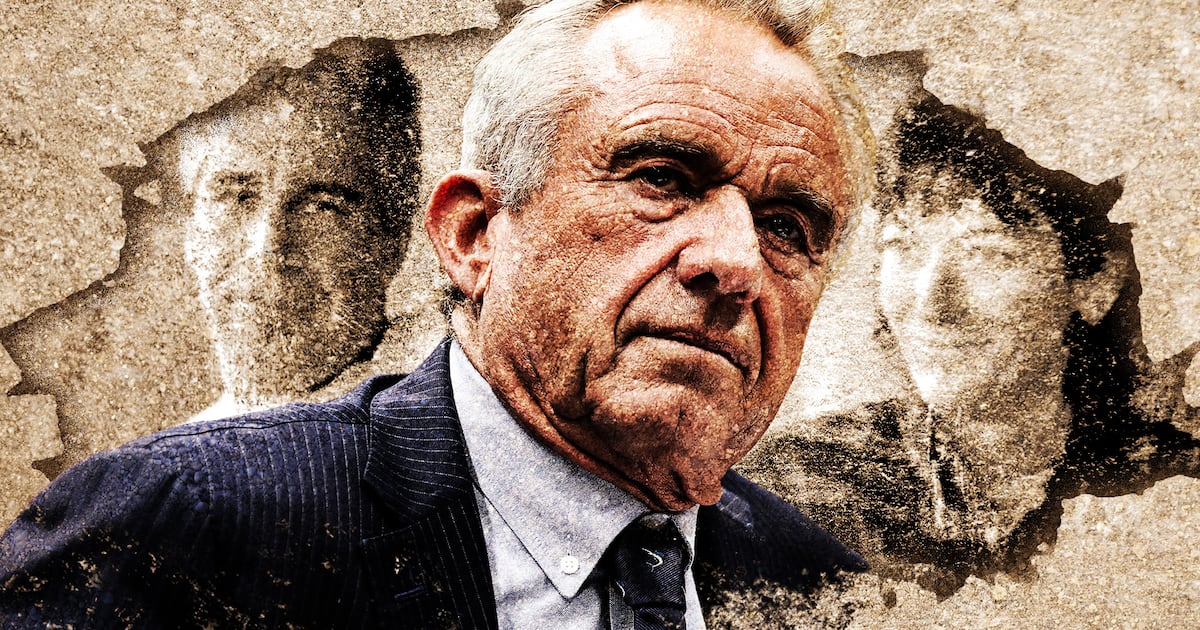Iran’s deputy health minister was drenched in sweat at the press conference on Monday where he vehemently denied Tehran was covering up the extent of the coronavirus outbreak. He kept wiping his brow with his handkerchief and was in visible distress as he said quarantines were a “Stone Age” way to address the problem, and Iran doesn’t need them. Then, sure enough, that night he tested positive for the virus himself and put himself in quarantine.
The irony of Deputy Health Minister Iraj Harirchi’s case would be funny almost, were Iran’s conspicuous bungling of the coronavirus threat not a menace to the whole region and, indeed, to the world.
As The Daily Beast’s partner publication, IranWire, revealed in an exclusive report Thursday, Iran’s Islamic Revolutionary Guard Corps has tried to address the epidemic by telling doctors to shut up about it, much as Chinese authorities in Wuhan did, disastrously, when the disease was just starting to spread last December.
The “official figures” from Iran give the game away. At last count, 16 people have died from COVID-19, but only 95 cases had been confirmed. As Wired UK points out, that would be a death rate of about 17 percent, when the data available from China, where there are huge numbers to work with, suggests the death rate is closer to 2 percent. The statistics don’t add up. Canadian researchers cited by Wired suggest the Iran outbreak probably involves more than 18,000 people, and counting.
Following is the full IranWire article written by Aida Ghajar:
IranWire can exclusively report that Iran’s Revolutionary Guards have threatened Iranian medical specialists with reprisals if any of them were to disclose information regarding the spread of coronavirus in Iran.
A group of specialist doctors met with Deputy Health Minister Iraj Harirchi on Feb. 22, during which they reported on the latest findings regarding the spread of coronavirus in Tehran and other Iranian cities. But soon after the meeting, the Islamic Revolutionary Guards Corps (IRGC) approached the doctors through the health ministry’s security office and warned the doctors not to leak any information from their discussions. The doctors were told that, if any details did leak, they would be held responsible and would suffer the consequences.
Despite these threats, the information received by IranWire shows the seriousness of the coronavirus outbreak, especially in Tehran. The doctors who were present at the meeting offered Harirchi their assessment of the official news and figures and told him that the figures published by the government do not match the reality of the situation.
As one of these doctors—whose name is withheld because of the threats from the Revolutionary Guards—told IranWire: “The statistics published by the government have nothing to do with reality of the situation and the number of infections is much higher than what the media reports. If things go on like this and if the Islamic Republic does not cooperate with the World Health Organization, we must expect a great disaster in the coming months and, only in Tehran, tens of thousands will be infected by coronavirus. This scientific estimate does not even include other epicenters like Qom. If we cannot come up with a framework to cooperate with the World Health Organization, our situation will become many times worse than in China.”
This doctor pointed out that, right now, a number of clinics in Tehran have been quarantined and the government’s attempts to keep the reality of the situation a secret is a “crime” in the legal sense of the word.
“Refusing to divulge real information to Iranians and to the international community is officially a crime because it endangers the lives of people not only in Iran but in other countries as well.”
In many countries, including the United Arab Emirates, Oman, Canada, Iraq, Turkey, and Lebanon, the first cases of coronavirus infections were brought in by Iranian citizens or by travelers who had visited Iran. This has led many countries to close their borders with Iran, in the air and on the ground.
According to this doctor, the outbreak of coronavirus in Iran occurred just after the outbreak in China. “But the problem started when we did not recognize that this virus is the same as China’s coronavirus,” the doctor said. “We made a mistake when we identified it as a variant of influenza viruses.… But, after it became known that it had been a mistake, [officials] continued as before and did not disclose the facts.”
The doctor said Iran’s government has no plans for containing the crisis. Officials have “no other choice except secrecy,” he added. “This will disgrace the Islamic Republic, if it becomes known that its government is clueless. But this can lead to a humanitarian disaster.”
According to this doctor, after the meeting with the health minister was over, the Revolutionary Guards contacted each doctor who had been at the meeting. “They told us that we will be held responsible for even the smallest leak. But I could not keep silent anymore,” he said.
On Monday, two days after the meeting and after the doctors were threatened, Gen. Hossein Salami, the top commander of the Revolutionary Guards, called Health Minister Saeed Namaki and announced that the Guards were ready to provide any and all assistance in fighting coronavirus and preventing its spread.
On Feb. 25, in a televised speech, President Hassan Rouhani asked people to trust only statements by the health ministry for information about coronavirus.
The Iranian Cyber Police have meanwhile reported that they have arrested a number of “rumor-mongers” about coronavirus since Feb. 21. Gen. Hossein Rahimi, commander of Tehran’s Cyber Police, announced the arrests.
“Persons who want to create trouble for the people by spreading rumors and lying in cyberspace must know that the police surveils their behavior and will act against them decisively,” he said.
Earlier on Feb. 21, Gholamreza Jalali, commander of Iran’s Civil Defense Organization, accused foreign media of “creating panic” by publishing inaccurate or misleading figures about coronavirus infections. He emphasized that coronavirus must not be turned into a “political crisis.”
Jalali is the same official who, after floods had inundated many parts of Iran in early 2019, made strange statements about extreme weather, accusing Israel of “cloud stealing.” He claimed that “joint committees of Turkey and Israel” had stolen moisture and snow from the clouds over Iran.
With the Islamic Republic and the Revolutionary Guards turning the coronavirus outbreak into a security issue, by treating infection figures as state secrets, by arresting people for “rumor mongering” and, now by threatening doctors whose duty is to tell the truth about infectious diseases, it seems the experts may be proved right about the likelihood of a humanitarian disaster.
If the Islamic Republic continues in this way, we must expect a much bigger disaster than what is happening in China—not only for Iranians but for the world.








